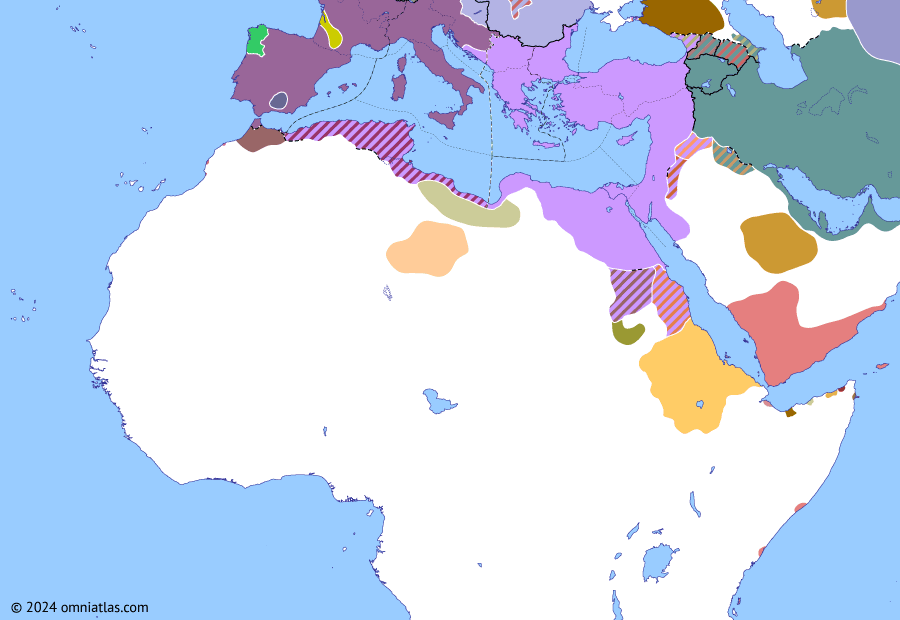Northern Africa 424: Joannes and Africa
spring 424
spr 424
Joannes and Africa
17 Jan 395 Division of the Roman Empire
late 397 Gildonic Revolt
c. 400 Emergence of Makuria
sum 407 Constantine III
spr 409 Gerontian Revolt
28 Sep 409 Vandalic invasion of Spain
early 410 Attalus’ African campaign
late 410 Death of Alaric
mid 411 Barbarian partition of Spain
spr 413 Revolt of Heraclian
late 414 Gothic African expedition
fall 418 Wallia’s Spanish War
early 420 Battle of the Nervasos Mountains
sum 422 Battle of Tarraco
spr 424 Joannes and Africa
sum 427 Revolt of Bonifatius
May 429 Vandal crossing to North Africa
28 Aug 430 Siege of Hippo Regius
sum 431 Second Battle of Hippo Regius
11 Feb 435 Treaty of Hippo Regius
In November 423, after the Western Roman emperor Honorius died without available heirs, the civil servant Joannes was proclaimed emperor at Rome with the tacit support of the generalissimo Castinus. The usurpation was immediately rejected by both the Eastern Roman emperor Theodosius II and Bonifatius, commander in Africa. The following year Joannes attempted to retake Africa, but the campaign ended in fiasco, seriously undermining the position of the new emperor.
This map has in-depth notes in the Journal, exclusive to Patrons on Classical Tier and above. Find them in the events descriptions, marked with the Journal icon .
